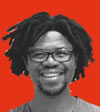Award-winning journalist SIMNIKIWE XABANISA, who had first-hand experience of run-ins with Peter de Villiers, provides a different view point on the former Bok coach’s tempestuous relationship with the media.
Not long after referee Bryce Lawrence had done the Lord’s work by his New Zealand countrymen by blowing the Springboks out of the 2011 Rugby World Cup quarterfinals, coach Peter de Villiers was last to get onto the team bus heading to their Wellington hotel.
Before he did the understandably upset coach had one more score to settle, so he called out to three SA journalists covering the tournament. “Hey!” he said. “Do you know what the best part of this is? I don’t ever have to see you f*****s again!”
The above pretty much sums up De Villiers’ tempestuous relationship with the media during his tenure as Bok coach, a fact confirmed by his recently claiming to have once called rugby journalists rats in code during Springbok press conferences.
It’s been a tough couple of years for us sensitive rugby hacks: first former Sharks coach Robert du Preez called us cockroaches last year, now another unemployed coach is out there calling us rats and questioning our understanding of the game because we didn’t play First XV rugby at school.
READ: I played media when I called them rats – P Div
Forget that not many would be writing about rugby if we’d concussed ourselves at first team level every Saturday, De Villiers earned the right to talk about us any way he likes based on what was written about him when in charge of the Boks.
Thanks to SA Rugby having declared that rugby reasons weren’t the only considerations in giving the country’s first ever black Bok coach the job, it became permissible for media and the rugby public to dismiss him as just another affirmative action appointment.
Because Springbok rugby coaches had looked and acted a certain way until then – white, Afrikaans and middle aged – the fact that De Villiers has a squeaky voice, sported an 80s moustache and spoke in T-shirt slogans meant he was always going to be dismissed as a figure of fun.
It’s an approach that crept into how his successes were reported: it was always because he’d inherited Jake White’s World Cup-winning team, etc.
We had our run-ins, most notably when I wrote that the famous Dunedin win over the All Blacks was achieved playing Jake White rugby. For saying that I had whatever abuse was coming my way (he accused me of trying to be white).
But in my defence I could have explained myself better, as in the Boks won it playing rugby that came more naturally to them than the “play what’s in front of them” approach De Villiers was preaching at the time (the vagaries of writing your third story at 2am, New Zealand time).
For all that, I probably zeroed in best on what his main value to what I maintain was the best Bok team we’ve had post-isolation, which was treating the players with the deference due to world champions, something highly unlikely under the schoolmasterly ways of White.
Despite his obsession with how he was portrayed by the “white media” – he has to be hung up on it if he’s still talking about it – I always found it interesting how he made it clear to the black writers that he considered them to be less capable than their counterparts.
De Villiers once tried to embarrass a colleague by asking him if he was a selector when he asked about a player not included in a training squad, and he point-blank refused to grant an interview to a radio station I worked for, saying if I was their specialist rugby guy they knew nothing.
The polarising thing about De Villiers is that his supporters want to believe he’s an unrecognised genius, while his detractors think he somehow bumbled his way to a record reading: won a British and Irish Lions Series, a Tri-Nations title and succeeded the most against New Zealand post-isolation.
The truth is somewhere in the middle, but the idea that De Villiers was an innocent bystander or a victim when the insults were flying needs to be put to rest.
Fractious relationships have consequences, and De Villiers has played his part in enough of those to know that fact.
Photo: Ryan Wilkisky/BackpagePix





